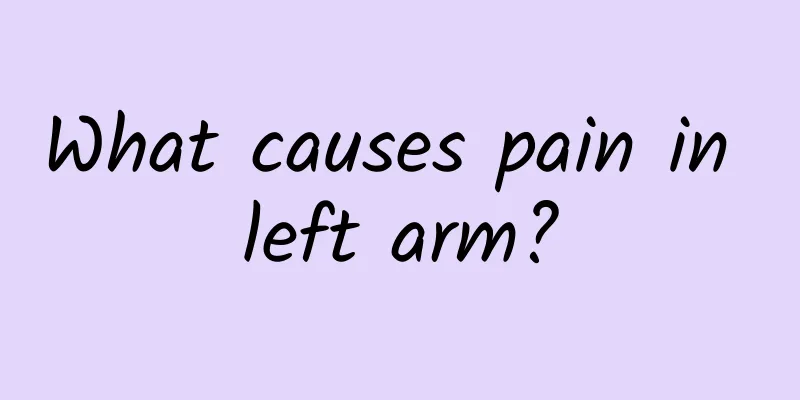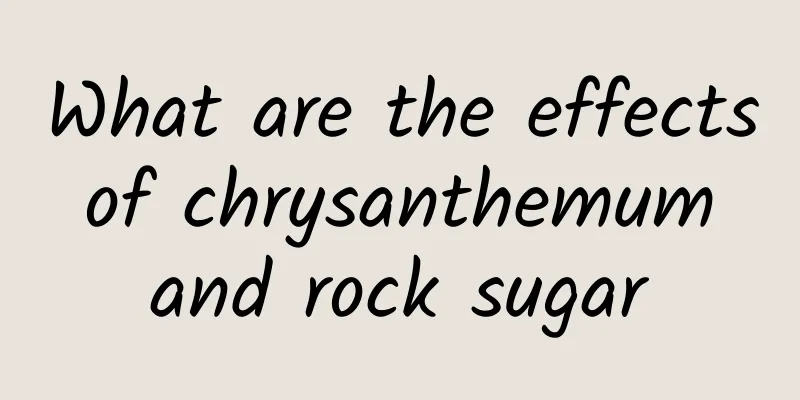Introduction to Chinese Medicine Pulse Diagnosis

|
Traditional Chinese medicine emphasizes observation, auscultation, questioning and palpation. Palpation means taking the pulse, or diagnosing the pulse. Many people now have misunderstandings about traditional Chinese medicine. No matter what, traditional Chinese medicine, which has been passed down for thousands of years, cannot be completely useless as some people say. If you want to learn Chinese medicine, you must start with Chinese medicine pulse diagnosis. Don’t just look at taking the pulse. All physical diseases can be reflected in the pulse. It takes real effort to learn it well. Next, let’s take a look at the introduction to Chinese medicine pulse diagnosis. According to traditional Chinese medicine, the meanings of the "Cun, Guan, and Chi" of the left and right hands are different. The "Cun, Guan, and Chi" of the left hand represent "heart, liver, and kidney", while the "Cun, Guan, and Chi" of the right hand represent "lung, spleen, and kidney (life gate)", so traditional Chinese medicine requires using both hands to take the pulse. After understanding these, we can start learning to analyze pulse conditions! Traditional Chinese medicine divides pulses into twenty or thirty types. Ordinary people don't need to understand all of them. Here we will only introduce several common pulse conditions: rising and sinking, strength, thickness, speed, and stop and beating.1. There are two situations of rising and falling. One is to place your hand lightly on the pulse. With just a little force, you can feel a clear pulse. This is called floating. If you can't feel it at all, and you keep increasing the pressure until you almost press on the bone, then you can feel a clear pulse, this is called sinking. If you cannot feel it without using force, and you press it inward with a little force but not to the bottom, this is called neither sinking nor floating. It can also be called sinking (more force) or floating (less force) according to the amount of force used. Collectively, it is called middle. The other is that when taking the pulse, you only feel the pulse of the Cun part, while the Guan and Chi parts are far less obvious, which is also called floating; and by analogy, if the Cun and Guan are not obvious but the Chi is obvious, it is also called sinking; if the Cun and Chi are not obvious but the Guan is obvious, it is also called medium. Why does the pulse have a floating or sinking difference? Generally speaking, when the body's protective function fights against external evil, it first wants to solve the problem from the "surface". Body fluids, qi and blood are all gathered here to fight. Therefore, there is enough qi and blood here, and the pulse shows a floating sign. When the problem cannot be solved here, the evil advances inwards, the righteous qi retreats inwards, and the qi, blood and body fluids are concentrated in the middle part (half surface and half interior), and the pulse shows a middle sign. When the evil wins again and advances inwards, the righteous qi is defeated again and retreats inwards, and all retreats inside, where it accumulates strength to fight a desperate battle with the evil, and the pulse shows a sinking sign. In short, wherever the positive energy (body fluid, blood, qi and blood) gathers, it will be reflected in the corresponding part of the pulse. If you keep this in mind, it will not be difficult to observe the pulse.2. After finding the pulse by force, it is not enough to just press it still. Doctors will do some "little tricks". Slowly press down with more force, then reduce the force a little, and lift your fingers back to their original position. Repeat this several times. Why do this? Because you can use your fingers to feel the force of the pulse on your fingers. When you press down, if you feel the pulse is hard, solid, and has a strong rebound force, it proves that the pulse is strong. If the fingers do not touch much resistance when pressing, "You can press wherever you want, however you want, I will not resist!", or even the pulse disappears when you apply a little force, then this pulse is weak. The doctor judges whether the pulse is weak or strong based on this. So what does being strong or not mean? Being strong means that the positive energy is strong, but if the evil energy and the positive energy are equal, Chinese medicine practitioners will always say that the evil energy is strong and the positive energy is okay, and then treat it according to the evil energy level. Lack of strength indicates deficiency of vital energy. In treatment, we must first supplement and support the vital energy. When the vital energy is sufficient, it will naturally be able to fight against the evil energy! From the perspective of treatment methods, for a strong pulse, Chinese medicine often uses the method of attack and drainage. For example, for Ma Huang Decoction syndrome, the pulse is required to be tight, and for Cheng Qi Decoction and the like, the pulse is required to be solid. This tight and solid means that it has to be strong. If the pulse is weak, using these prescriptions will cause the patient to collapse and faint! For weak pulses, Chinese medicine often uses the method of supplementation. For example, the pulse of Gui Zhi Decoction syndrome is slow, and the pulse of Sini Decoction syndrome is weak. These are weak pulses that cannot be attacked, but only nourished. As for how much medicine to use, whether to add tonic ingredients to the attacking part, whether to add attacking ingredients to the tonic part, and how much to add, it depends on the strength of the pulse. 3. It is not enough to just know the strength of the pulse. There is also a small trick. Use your fingers to carefully massage or rub from the thumb side to the little finger side, and then from the little finger side to the thumb side, and so on horizontally and repeatedly to feel the width of the blood vessels. In layman's terms, it means to see how thick or small the pulse is. Since the vital energy, body fluids and blood are sufficient, they need to move and be transported outwards. Not only does this require great force, but the space in the transporting channels (blood vessels) must also be large. Otherwise, the vital energy is sufficient but the space is insufficient and it cannot be transported out in real time. Therefore, Zhongjing said that "Yangming pulse is big". Yangming has a lot of blood and qi, and in order to transport it, the blood vessels must be big. By analogy, "thin" of course means that Qi and blood are not abundant. But there are some unusual situations. In clinical practice, there are often examples of large but weak pulses or small but strong pulses. Why?This involves the problem of excessive or insufficient qi and blood. Qi and blood are two tools of yin and yang. Qi is responsible for transportation and infusing blood throughout the body, so it is yang, automatic and expands; blood is yin and nourishes, it has a very real form (liquid) and can be seen and touched; the strength or thickness of the pulse is the common achievement of Qi and blood, but blood focuses on the strength of the pulse, while Qi focuses on the thickness of the blood vessels. When both are strong, the pulse is thick and powerful; when both are weak, the pulse is thin and weak; when the qi is weak and the blood is strong, the pulse is thin and powerful; when the qi is strong and the blood is weak, the pulse is thick and weak. So the thickness and fineness also depend on whether you have the strength to watch it all the way! Traditional Chinese medicine determines whether to use Qi-regulating medicine or blood-regulating (Yin-regulating) medicine based on this. For example, modern people often say that they have yin deficiency and need to nourish yin, and they take yin-nourishing medicines such as donkey-hide gelatin and Shouwu juice, but if your pulse is thin, you will likely get acne after taking these. Some people like to take qi-tonifying medicines, such as ginseng and astragalus, but if your pulse is thick, you will get angry, insomnia, and anxiety after taking them. Of course, this is just a general rule. There are many details to consider when using Chinese medicine, which I will not discuss here. 4. How fast is a normal pulse? "Suwen·On the Qi and Image of the Normal Person" says "When a person exhales, the pulse beats twice, and when he inhales, the pulse beats five times when the breathing is steady, with an extra beat to increase the breath." This means that for a normal person, the breathing rhythm is fixed, and the pulse should beat four times between one inhalation and one exhalation. It sounds simple and practical, but it is actually very difficult to grasp! People breathe fast or slow, but whose breathing is the standard? Western medicine's research in this area has provided great assistance to traditional Chinese medicine. According to the research results of Western medicine, a normal adult's pulse beats about 75 times per minute. The pulse rate of the elderly will be relatively slower, that of the young will be relatively faster, and that of infants will be even faster. With this standard, it is easy to determine fast and slow: those who fail to reach the standard number of times are called slow; those who exceed the standard number of times are called fast. What is the significance of judging speed? "Nanjing" says: "Fast means heat, slow means cold", which means: fast means the body's disease-fighting self-protection system is in a relatively active and automatic state; slow means the disease-fighting function is already quite exhausted, and has entered a negative, passive or even giving-up state. Traditional Chinese medicine chooses treatment strategies based on the speed of the pulse. If the pulse is fast, they will actively work together to eliminate the evil and provide the body with enough food and ammunition! If the pulse is slow, they will first assess the deficiency and strengthen the body, and not rush to attack the evil. It doesn't even want to fight, but if you force it to go to the front by forcing it to eat food, fodder and ammunition, it will either surrender to the enemy or become a deserter. We need to do some ideological work first to arouse its fighting spirit. s |
<<: What are the sequelae of hysteroscopic electrosurgical resection?
>>: What are the sequelae of orthodontics?
Recommend
Can I get pregnant if I have gynecological diseases?
In fact, in today's life, many women are affe...
How to treat a broken nose correctly
Of course, a broken nose must be treated correctl...
Why do I feel pain all over my body during menopause?
As women age, they go through a period called men...
Stomach pain after masturbation
I believe that many young people now know about m...
The efficacy and function of Chinese medicine leeches
Leeches are an aquatic animal and a traditional C...
How to treat endocrine disorders? Both Chinese and Western medicine have tricks
Endocrine disorders are a disease that makes peop...
Hyaluronic acid rhinoplasty later widening
The nose is one of the most important organs in t...
What are the advantages of TCM in treating tumors?
Many of our friends think that cancer is a scary ...
Lumbar spine blockade for pregnant women
Many people choose to get a blocking injection wh...
Symptoms of arthritis in fingers
I believe everyone knows the importance of finger...
How to quickly eliminate acne on the philtrum
If acne appears on the philtrum, it may have some...
What is perianal herpes? What are the early symptoms?
In order to cure genital herpes early, it must be...
Why do children's hands always sweat?
Although the baby's body regulation ability i...
What are the benefits of eating Gastrodia elata?
Gastrodia elata is a very precious traditional Ch...
What can't leukemia patients eat?
Leukemia is a special disease of the human body, ...









